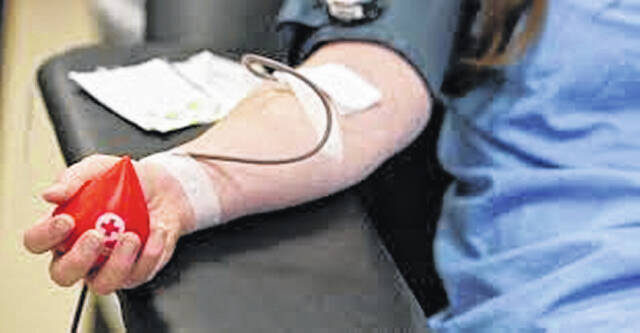The nation’s blood supply has reached historically low levels — levels so low it could cause hospitals to delay patient care, donation centers say.
The American Red Cross, which supplies about 40% of the U.S. blood supply, needs blood donations — now. The decline in donations comes at a time of year when donations typically fall due to school breaks, holiday gatherings and winter weather, according to an American Red Cross news release.
But without a change in the trend, hospitals could be forced to hold off on essential blood and platelet transfusions for patients.
“We really need blood right now,” said Hyacinth Rucker, an American Red Cross spokesperson.
Blood centers across the United States have been reporting they have less than a day’s supply of blood, and donations are needed to avert the need to postpone potential lifesaving treatments. Some hospitals have already been forced to alter treatment for some patients and cancel surgeries for others, the American Red Cross, American Blood Centers and the Association for the Advancement of Blood and Biotherapies said in a joint statement earlier this month.
Blood has a short shelf life which leads to the blood supply needing constant replenishment. It can take up to three days for blood to be tested, processed and made available for patients. More than 16 million units of blood and blood products are transfused annually, with more than 45,000 units needed daily, the joint news release says.
“(Donations are) essential to maintaining the stability of the nation’s blood supply, which ensures life-saving medical treatments are available for patients,” the organizations said in the news release.
Closer to home, at Franciscan Health in Indianapolis, blood supply is tight, but it is adequate and meets the needs of the hospital’s surgical schedule as of Monday afternoon. Hospital staff monitor the situation in a collaboration between the surgical services and blood supply teams, said Joe Stuteville, a Franciscan spokesperson. The need for donations remains high, though, he said.
Healthy individuals who could be potential donors are encouraged to schedule an appointment to give blood. If there is not an immediate opening to donate, donors are asked to make an appointment in the days and weeks ahead to help the Red Cross replenish and maintain a sufficient blood supply, the news release says.
From now until Sunday, donors will receive an exclusive Red Cross long-sleeved T-shirt while supplies last, the Red Cross says. Additionally, anyone who donates blood, platelets or plasma in the month of January will automatically be entered for a chance to win a getaway to Super Bowl LVI Feb. 13 in Los Angeles. For more information on the contest, visit RedCrossBlood.org/SuperBowl.
The Red Cross is also automatically entering January donors in a contest to win a home theater package and a $500 e-gift card, the news release says.
Appointments can be scheduled by calling 1-800-RED CROSS, or 1-800-733-2767, online at RedCrossBlood.org or through the Red Cross Blood Donor App, according to the news release.
To donate, bring a blood donor card or driver’s license, or two other forms of identification which are required for check-in. Those who are at least 17 years old in most states — or 16 with parental consent where allowed by law — weigh at least 110 pounds and are in generally good health may be eligible to donate blood. High school students and other donors 18 years old and younger also will also need to meet certain height and weight requirements, the news release says.
Additionally, face masks are required for donors regardless of vaccination status, according to the news release.
“It takes less than an hour to donate blood which could save up to three lives. That’s a gift. You can’t buy that,” Rucker said.
Those who have received a COVID-19 vaccine currently authorized in the United States, including Johnson and Johnson, Moderna, and Pfizer, are able to donate blood and platelets as long as they are symptom-free and feeling well at the time of donation, according to the joint AABB, America’s Blood Centers and American Red Cross news release.
The American Red Cross is also screening all blood, platelet and plasma donations from self-identified African American donors for the sickle cell trait. This additional screening will provide donors with a additional health insights and help the Red Cross identify compatible blood types more quickly to help patients with sickle cell disease who require trait-negative blood, the news release says.





